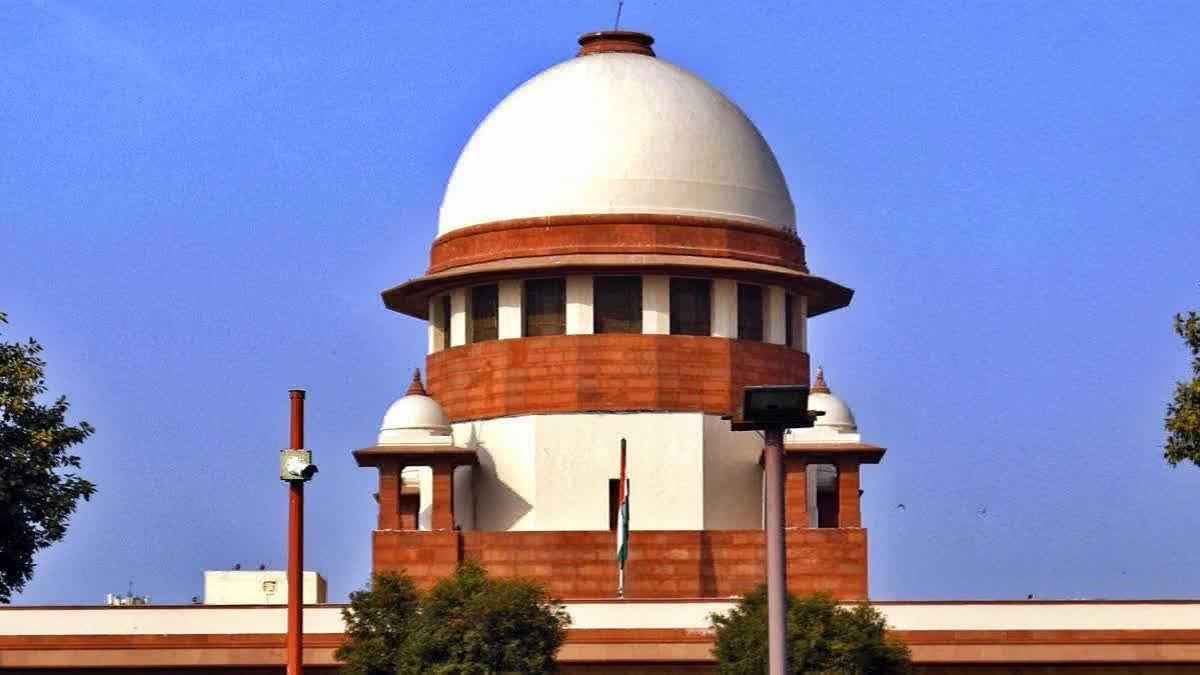New Delhi: The Centre on Thursday told the Supreme Court due to confusion on whether Article 370 was temporary or permanent, there was a psychological duality in the mind of a particular section of our country and this confusion was taken advantage of by forces inimical to India and with the abrogation of Article 370 this duality has ended. During the hearing, the top court orally observed that it “cannot postulate a scenario where ends justify the means....the means have to be consistent with the ends”.
A five-judge constitution bench headed by Chief Justice of India D Y Chandrachud and comprising justices S K Kaul, Sanjiv Khanna, B R Gavai, and Surya Kant, is hearing a batch of pleas challenging the abrogation of Article 370, which bestowed special status on the erstwhile state of Jammu and Kashmir.
Attorney General (AG) R Venkataramani, representing the Centre, submitted a summary of his written submissions before the court. The AG said it is often the case that a limb is amputated to save a life but life is not given to save a limb and they wanted to ensure that the Constitution is preserved with regard to processes and due process on the other hand there was a scenario of losing the nation.
At the juncture, the Chief Justice said, “Mr. Attorney General, we cannot postulate a situation where the ends justify the means also….means has to be consistent with the end”. The AG replied all of us understand that and this question confronts us in both public and personal life.
Solicitor General Tushar Mehta, also representing the Centre, opened the arguments defending the Centre’s decision to abrogate Article 370. Mehta said due to confusion on whether Article 370 was temporary or permanent, there was a psychological duality in the mind of a particular section of our country. Mehta stressed that this confusion was taken advantage of by forces inimical to India and with the abrogation of Article 370 this duality has ended
The bench queried Mehta on the importance of accession and pointed out that petitioners’ have argued that sovereignty has an internal and external aspect and that the external aspect was lost but not the internal aspect. Mehta said accession is the first step in losing sovereignty and with Article 1 of the Constitution coming into existence, the only sovereign that remained was – ‘we the people of India’. He said petitioners’ argument regarding internal sovereignty will be addressed and stressed that the contention that Jammu and Kashmir was the only princely state with its own constitution is factually incorrect.
Mehta emphasised that 62 states had framed their own constitution, a basic argument that only J&K had a constitution therefore getting a separate treatment this argument is not factually well founded.
Mehta said abrogation of Article 370 restored the fundamental rights of the people of J&K and now post abrogation people of J&K enjoy rights equal to any other citizen part of the country and ‘equality of status’ was the goal while framing the Constitution. The apex court was informed that several constitutional provisions give states internal autonomy while being part of India. Mehta will continue to argue after lunch.



